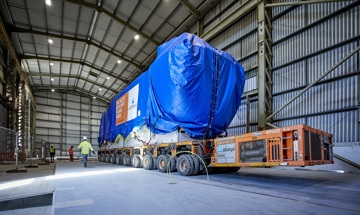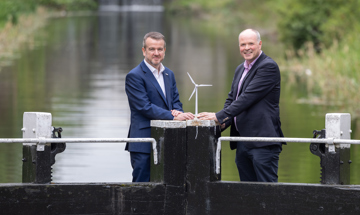- New data reveals a North-South divide, with drivers in the South paying over a quarter (28%) more than those in the North of England and Wales to charge using the cheapest public chargers
- Fast chargers are more than 10% more expensive in the South
- One in three UK drivers are nervous about switching to electric due to expensive public charging costs
- Cheapest to charge in West Midlands but drivers will be shocked by cost to charge in the South West
- British Gas is working to make charging more accessible to drivers by offering both home and workplace charging solutions
New research released today reveals there is a postcode lottery when it comes to electric vehicle charging costs. There are 21 councils across England and Wales, including Leeds, Bridgend and Woking, where it is completely free to charge your electric vehicle using council owned public chargers. These councils are leading the way by supporting the transition to electric vehicles in their areas, making charging more accessible to local drivers.
The research commissioned by British Gas under a Freedom of Information request to over 400 councils shows that drivers in the South are being charged over a quarter (28%) more than those in the North to top-up their electric cars using the cheapest council owned chargers. It costs drivers in the South (East Anglia, London, the South East and South West of England) 32p per kWh to recharge compared with just 25p per kWh for people in the North (Wales, the Midlands, the North East and North West of England and Yorkshire & The Humber), based on the average price of the cheapest council owned chargers in each area.
"Currently, we have 21 progressive councils that have decided to support local EV adoption, so we would expect a greater uptake of EVs to come through in these areas than in councils where it is expensive to charge."
Lucy Simpson, Head of EV Enablement at British Gas
Although drivers in the South may have access to 1,468 more on-street charging points than their Northern counterparts, it seems they are having to pay more to use them. This location discrimination leaves drivers unfairly out of pocket and makes the transition to EVs less accessible ahead of the 2030 ban on new petrol and diesel cars.
Despite this, drivers remain keen to switch to greener models, as the research reveals that half (49%) would consider purchasing an electric vehicle as their next car. However, almost one in three (29%) named expensive public charging costs as one of the biggest barriers to switching to an EV, alongside the outlay for the car and the fact that government incentives do not cover enough of the costs.
More than two in five (42%) drivers are put off switching as they are concerned about the time it takes to charge, so access to fast chargers needs to improve across the UK. The investigation shows that it will cost drivers in the South over 10% more to use the cheapest council owned fast chargers than those in the North (32p vs 29p per kWh respectively).
The problem is worse for any drivers without a driveway. With no access to home charging they are reliant on public charging infrastructure. Out of drivers who do not have a driveway or off-street parking, just 7% already have an EV, less than a quarter (24%) are considering switching but over half (53%) are not considering purchasing an EV at all.
Drivers are confused about the information available on EVs, with three in five (60%) saying they feel there is a lack of information on both public and home charging costs. A huge number of motorists said that they didn’t know that charging costs vary depending on location (60%), between different speed chargers (56%), between different public charging operators (55%) and between public vs home charging (53%), with more than half (51%) saying that clearer information on charging costs would help more people to make the switch.
Out of all the regions in England and Wales, the West Midlands is leading the way by making public charging more financially accessible to all, costing 20p per kWh to charge on average using the cheapest council owned chargers available. The East Midlands is the next cheapest region to charge, at 22p per kWh, on average.
Two of the home nations, Scotland and Northern Ireland, go further and are home to government mandated, subsidised and maintained public EV charging infrastructure: the ChargePlace Scotland and ecarNI networks, offering free or heavily discounted charging.
This postcode lottery of charging prices is best demonstrated in the South West, where the cheapest charger will set you back 63p per kWh, on average. This is more than 57% higher than the second most expensive region, the East of England, where it costs 40p per kWh to charge.
|
Region |
Cost to charge p/kWh using cheapest public chargers available |
|
West Midlands |
£0.20 |
|
East Midlands |
£0.22 |
|
North West |
£0.22 |
|
Wales |
£0.24 |
|
South East |
£0.25 |
|
London |
£0.26 |
|
North East |
£0.28 |
|
Yorkshire & The Humber |
£0.31 |
|
East of England |
£0.40 |
|
South West |
£0.63 |
Many drivers may be shocked to learn of regional pricing disparities, as more than one in three (34%) expect charging costs to be the same in the North and the South. A huge 58% went on to say that they think that the government needs to invest money into public charging infrastructure in all regions of the UK equally to support the levelling up agenda.
Commenting on the research which has highlighted stark regional inequalities for charging costs Lucy Simpson, Head of EV Enablement at British Gas says:
“The latest figures released today demonstrate the need for all UK councils to play their part in supporting the transition to Electric Vehicles. Currently, we have 21 progressive councils that have decided to support local EV adoption, so we would expect a greater uptake of EVs to come through in these areas. If charging doesn’t become more accessible, we could see a slower rate of adoption.
“Whilst the government does offer certain financial incentives at the point of purchase, charging costs are still a barrier to electric vehicle adoption. With 29% of drivers citing expensive public charging as one of the main reasons holding them back, it’s unfair that those who don’t live in areas with either free or low cost charging are being discriminated against based on their address. If this continues, we risk leaving a huge number of drivers behind in the transition to electric cars.
“This especially affects those without a driveway or off-street parking, who are forced to pay over the odds to charge. While at the moment, we are advising drivers to stick with their current energy providers due to the cost of wholesale energy, in the medium term home charging systems, such as the Hive EV charging, and electric vehicle specific tariffs will be the most cost-effective and convenient way to charge. What’s more this is invariably the most green method of charging as it makes use of overnight renewable energy.”
NOTES
Clarification:
A previous version of this article included incorrect data around the country's most expensive chargepoints. We have since edited the copy to reflect this. We unreservedly apologise to Bournemouth, Christchurch & Poole (BCP) Council, Cotswold District Council, Harrogate Borough Council and Uttlesford District Council who were misrepresented in the article and to the media who may have used the incorrect data.
Notes to Editors
[1] In August 2021, British Gas issued a Freedom of Information request to UK councils requesting the following information:
- The electric vehicle charging point with the highest £p/kw which is therefore the most expensive £/kw charging point. Data broken down by charging point type – a) ultra-rapid b) rapid c) fast or d) slow.
- The electric vehicle charging point with the lowest £/kw and is therefore the least expensive £/kw charging point. Data broken down per charging point type – a) ultra-rapid, b) rapid, c) fast or d) slow.
- How much revenue was generated by council owned electric vehicle chargers in 2019, 2020 and 2021 to date? Data given separately, broken down by calendar year.
- How many council owned electric vehicle charging points in your authority area in 2019, 2020 and 2021 to date? Data given separately, broken down by calendar year.
[2] According to the responses to the FOI request, it costs 25p per kWh on average to charge using the cheapest chargers in each council in the North vs 32p per kWh in the South
[3] List of 21 councils where it is currently free to charge your EV:
- Arun
- Bracknell Forest
- Bradford
- Bridgend County Borough Council
- Crawley
- Daventry
- East Riding of Yorkshire
- Hambleton
- Lancaster
- Leeds
- Lichfield
- Lincoln
- Oadby and Wigston
- Southampton
- Staffordshire
- Stevenage
- Stockport
- Swindon
- Tunbridge Wells
- Warrington
- Woking
[4] Based on OnePoll omnibus research of a sample of 2000 UK drivers aged 18 or over
[5] The figures do not include Northern Ireland or Scotland
[6] In September 2020, Centrica PLC issued a Freedom of Information request to UK councils, requesting the following information:
- How many EV charging points have you installed in your authority area since 2017
[7]It costs 29p p/kWh to charge using the cheapest fast chargers available in the North vs 32p in the South. This is a 10.3% price difference.

News
Centrica Business Solutions completes work on 1 MW solar array in Wolverhampton
Sustainability

News
British Gas launches exclusive offer with Mixergy smart hot-water tank owners
Sustainability

News
Construction starts to double power station capacity at Brigg Energy Park
Sustainability

News
Centrica, Equinor and SSE Thermal launch new Humber Hydrogen Hub projects in Parliament
Sustainability

News
Bord Gáis Energy and Corio Generation to explore Ireland offshore wind opportunities
Sustainability

News
British Gas launches UK’s lowest heat pump rate to drive take-up
Sustainability
